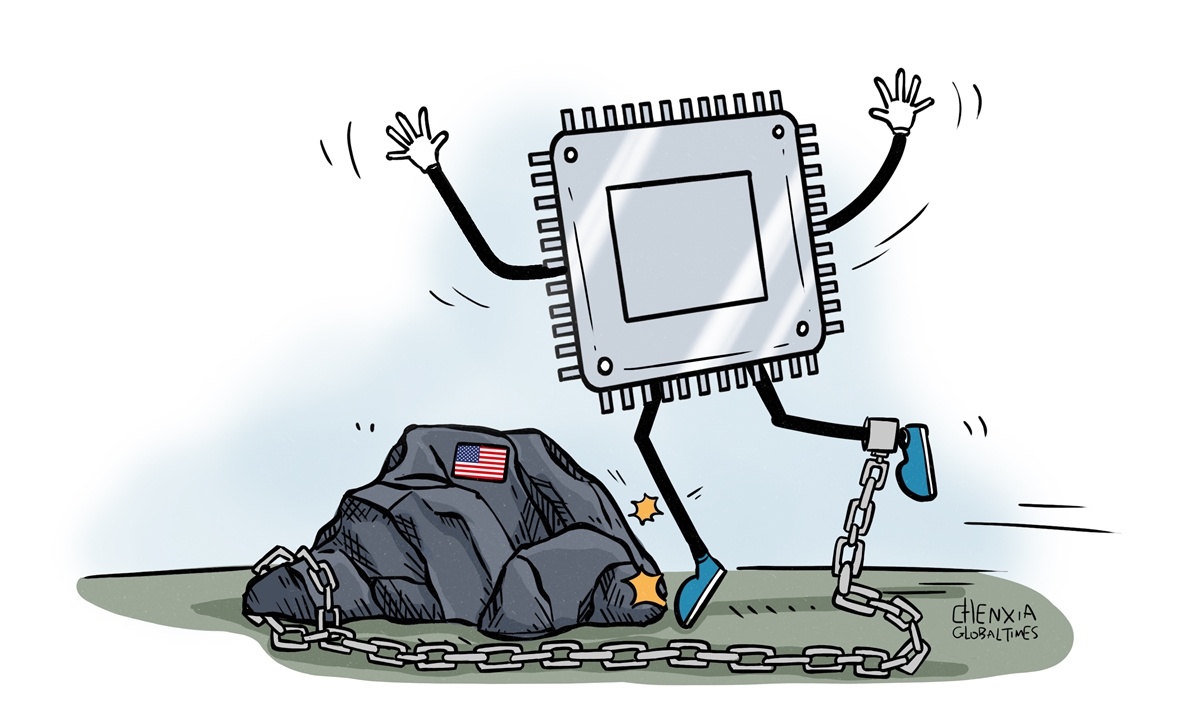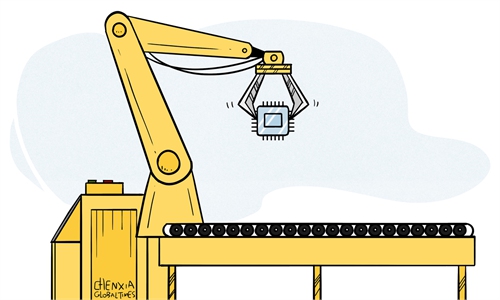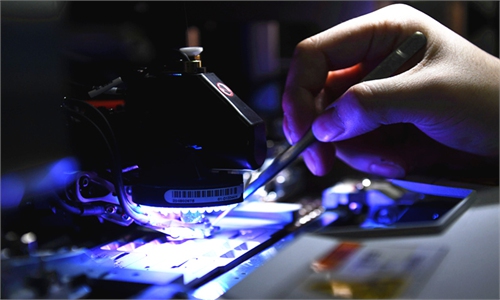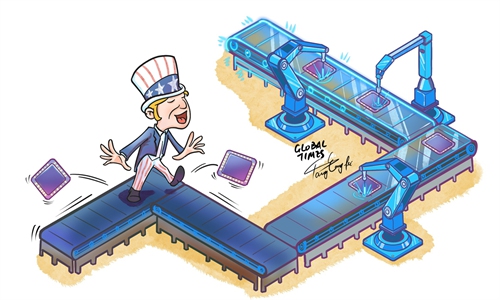
Illustration: Chen Xia/Global Times
The US and the Netherlands are expected to hold a new round of talks this month on "restricting China's access to advanced chip technologies," during which Washington will likely ramp up pressure on Dutch officials to block the country's chip equipment maker ASML Holding NV from supplying the Chinese market, Bloomberg reported.No matter what the Netherlands' attitude toward US pressure ends up being, one thing is clear: Washington will continue to push its technology decoupling by choking off high-tech exports to China although such hegemonic behavior will hurt the interests of many Western enterprises that view China as an important export market.
In this case, the Netherlands-based ASML may become the victim of Washington's selfishness.
China's vast market is of great significance for ASML that makes one of the most important pieces of machinery required to manufacture the most advanced chips. As China's semiconductor sector keeps progressing despite the US' unrelenting crackdown, the Chinese mainland has become the third largest market for ASML. The Chinese mainland market contributed 14.7 percent of the company's total revenue last year, and the share has grown to 34 percent in the first quarter this year.
When the US government enacted sweeping rules that aimed to cut off China from key chips and semiconductor manufacturing equipment, the Netherlands-based chip equipment maker may fall victim to US government bullying.
According to information released so far, like other semiconductor companies around the world, ASML does not want to give up sales in the Chinese market for the US geopolitical game that serve only Washington's interests.
ASML has continued to commit to the Chinese mainland market despite the US' political coercion. Shen Bo, head of ASML China, was quoted as saying in a recent media report that regardless of external non-market factors, ASML has firm willingness to support and invest in the Chinese market. In June, the company was reported to expand Chinese employees by 14 percent. ASML's attitude toward China has been well rewarded by the market. In the third quarter, ASML reported record bookings and strong earnings that bucked the trend of a slowdown in the chip industry.
The Dutch government should listen to the voices of ASML and respect the company's willingness to invest in the Chinese market. At the very least, the government should defend Dutch companies' legitimate rights and interests, otherwise, Dutch firms will be exposed to bullying by the US and suffer financial losses caused by Washington's decoupling push against China. In the dispute, the Dutch government should stand on the side of ASML.
China and the Netherlands are important investment and trade partners. Win-win outcomes are based on economic cooperation with a spirit of market openness, free trade and fair competition. Companies from all over the world, including the Netherlands, are welcome to expand investment in China and deepen cooperation in various fields to achieve common development. In this regard, more efforts should be made by the Dutch government to protect the interests of Dutch firms.
If ASML's business in the Chinese mainland is affected by the new US export control regime, it will cause severe loss to the company. New restrictions by the US government on exports of semiconductor technology could affect up to 5 percent of ASML's order backlog, CEO Peter Wennink said in October, according to Reuters.
US' export control measures will complicate efforts by high-tech companies in the Netherlands and wider Europe to expand their sales in the Chinese market. Some US politicians try to mislead public opinion by saying that China "steals technology from Europe" but their allegations are completely unfounded.
China has become the largest source of EU imports of high-tech products. In 2021, EU's high-tech imports from China accounts for 38 percent of its total imports. The largest category of EU imports of high-tech products from China is electronic communication devices, while the largest category of imports from the US is aerospace products, according to Eurostat data.
High-tech trade is mutually beneficial to both China and European countries including the Netherlands, and it involves the interests of many European companies. European policymakers should do more to protect the interests of European businesses.
The author is a reporter with the Global Times. bizopinion@globaltimes.com.cn



